March 12–13, 2026

Call for Papers
Submission Deadline October 1, 2025
Selected speakers will be notified of their acceptance by November 14, 2025.
Theme: Evidence in Action
We invite submissions that reflect Evidence in Action — real-world strategies and inclusive approaches rooted in research and designed to drive meaningful change. Whether you are delivering services, conducting research, supervising teams or partnering with families, we want to showcase how you are turning evidence into actions that advance care, promote choice and improve quality of life for individuals with developmental disabilities.
Target Audiences
We welcome submissions from professionals working in or with:
- Applied behavior analysis (ABA)
- Psychology and mental health
- Education and special education
- Allied health professions (e.g., speech-language pathology, occupational therapy)
- Social work and care coordination
- Community and family and self-advocacy
Categories
- Critical Topics – Addresses a timely issue, trend, or challenge in the field. These sessions are typically conceptual or practice-based and may include literature reviews, policy analysis, ethical discussions, or calls to action, rather than new empirical data.
- Research Presentation – Presents original empirical research that contributes to the field’s evidence base. Submissions should include objectives, methods, results, and implications for theory, practice, or future research.
Topics
- Self-advocacy
- Wellbeing/Quality of life
- Parent mediated
- Behavioral health treatment
Labels
- Neuro-affirming care
- Mental health
- Artificial intelligence
- Ethics
- Behavior Analysis
- NDBI
- Parent-mediated
- CBT
- Outcomes
- Real world data
- Other
Submission Guidelines
I. Presentation Formats
Individual Presentation
- Duration: 1 hour
- Presenter: 1 individual
- Format: A lecture-style or interactive session focused on a single topic. Ideal for clinicians, educators, and researchers who want to explore a focused subject through case examples, implementation strategies, lessons learned or applied research.
Symposium
- Duration: 1 hour total
- Presenters: 2–3 individuals
- Format: Coordinated presentations that explore a topic from multiple angles. Sessions should be thematically cohesive and allow time for discussion or Q&A. Each presenter should offer a distinct yet aligned perspective on the theme.
Poster + Lightning Talk
- Duration: Poster displayed during conference session hours with a Lightning Talk, a 5–15 minutes pre-recorded presentation.
- Presenter: 1 individual
- Format: A visual research poster accompanied by a brief, pre-recorded video presentation. Ideal for clinicians, educators, and researchers who want to share findings, preliminary results, or applied projects in a concise format. The poster should clearly convey the research question, methods, and key takeaways. The lightning talk should enhance the poster by providing context, interpretation, or insights from the work.
II. Submission Components
Each submission must include the following:
- Title
Use title case and spell out all acronyms (e.g., Building Effective Routines: A Family-Centered Approach). Keep it under 15 words or 200 characters.
- Abstract (250–350 words)
Note: The total word count for your abstract, encompassing the Background, Method, Results, Discussion, and Conclusion sections, must not exceed 350 words.
The following tool provides clear guidance on how to write a strong scientific abstract that effectively summarizes your research. It outlines best practices, common formats, and examples to help you communicate your study’s purpose, methods, results, and significance with clarity and precision.
Tool: Writing a Scientific Abstract
Your abstract should include the following sections:
- Background
- Method
- Results
- Discussion
- Conclusion
Make sure that your abstract does the following:
- Introduces the topic and its significance
- Summarizes session content, format and/or methods
- Highlights how evidence is being applied in practice
- Spells out acronyms and uses accessible, jargon-free language
- Includes participant type, procedure summary and preliminary findings for data-based presentations
- Learning Objectives (2–3 Required)
Learning objectives must be:
- Specific
- Measurable
- Achievable
- Relevant
- Time-bound (optional)
Use Bloom’s Taxonomy action verbs (e.g., identify, apply, explain, analyze, evaluate, design, implement).
The following resource offers guidance on writing effective and measurable learning objectives to ensure your session meets the requirements for continuing education credit.
Tool: Writing Measurable Learning Objectives
Note: Please review the above link for writing measurable learning Objectives before submitting. If learning objectives do not meet the requirements for Continuing Education, the submission will be rejected.
Structure
Learners will be able to + [action verb] + [specific task] + [measurement criteria]
Examples:
- Learners will be able to conduct an assessment using the Compass-Behavioral manual across two clinical scenarios.
- Learners will be able to state the three elements of the ABCs of behavior.
- Learners will be able to implement cognitive-behavioral strategies during a role-play session with peer feedback.
- Knowledge Check Questions (6-8 Required for CE Eligibility)
- If your session will offer CE credit or be available on-demand, include a post-test with multiple-choice questions.
Requirements:
- 6–8 multiple-choice questions per CE hour (3 minimum per Elevate Your Impact session)
- Directly aligned with learning objectives
- Avoid “true/false” or “all/none of the above” options
- Provide the correct answer in bold
- Target comprehension, application, or analysis — not memorization
Example:
What is one component of behavior skills training (BST)?
A) Conducting a needs assessment
B) Modeling and feedback
C) Delivering test results
D) Scheduling follow-up care
- Professional References
- Each submission must include three (3) professional references
- Current (published within the last 10 years)
- Relevant (in alignment with learning objectives and narrative/program content) and sufficient (i.e. peer-reviewed)
- All references must be in APA format
III. Submission Guidelines
Original Work
Submissions must reflect original work. If similar material has been presented before, the abstract must describe how the content has been significantly revised or updated.
Presenter Requirements
- All presenters must attend the conference virtually (or submit recordings for On Demand access). Speakers receive complementary registration.
- Individuals may participate in only one accepted session (as solo presenter or symposium participant).
- Only active presenters should be listed on the submission.
- All presenters must accept the terms and conditions.
Ethical and Professional Standards
Presenters must confirm that:
- Ethical standards (e.g., IRB/IACUC) were followed where applicable.
- Appropriate permissions have been obtained for all data, images, or media.
- Language is inclusive and culturally respectful.
- Content aligns with Catalight’s values of equity, inclusion, and excellence.
IV. Disclosures
All educators must disclose any potential conflicts of interest, sponsorships, funding, or affiliations.
Examples
- I am a consultant for XYZ Corporation, which manufactures devices discussed in my presentation.
- My research was funded by a grant from ABC Foundation.
- I receive royalties from the sale of textbooks related to this presentation.
- I am employed by DEF University, which has a research partnership with a company related to this topic.
- I am a member of the GHI Professional Association, which advocates for policies related to this presentation.
V. Continuing Education Credit
(Optional) To be considered for CE credit (BACB, APA, SLP, etc.), submissions must include:
- 2–3 measurable learning objectives
- 3 corresponding quiz questions
- 3 peer-reviewed references (published within the last 10 years, APA format)
- CE instructor’s name, credentials, and short CV
- Indicate whether your session addresses:
- Ethics
- Supervision
- Diversity, Equity, and Inclusion (DEI)
VI. Submission Checklist
- Title (≤ 15 words, title case)
- Abstract (250–350 words, clear and evidence-focused)
- Target Audience
- 2-3 measurable learning objectives
- Time allotment
- 6-8 CE quiz questions (if applicable)
- If presenting a Topical subject, describe your expertise
- Instructional level
- Presenter contact information and role
- CV
- Disclosures and permissions
- Ethics and professionalism confirmations
- CE materials (if applicable)
VII. Submission and Contact Info
- Submission Deadline: October 1, 2025
- Submit Online At: Elevate Your Impact: Evidence in Action – Call for Papers
- Create a profile and then log in to the Elevate Your Impact membership platform
- Click ‘Profile Home’ and you should see a link for “Submit a Paper for Elevate Your Impact: Evidence in Action“
- Click this link and follow the prompts to complete your submission
- Speaker Selection: Selected speakers will be notified of their acceptance by November 14, 2025
- Contact Us: [email protected]
We’re excited to spotlight the incredible work happening across behavioral health. Let’s put evidence into action — and elevate your impact!
VIII. Submission Review Process
All submissions will be reviewed by the Elevate Your Impact Planning Committee. Papers are evaluated on relevance to the theme, innovation, clarity, and practical application. Reviewers include clinicians, researchers, educators, and/or family advocates.
Selection Committee
The Elevate Your Impact Selection Committee includes a multidisciplinary panel of professionals with experience in service delivery, research, education, and advocacy. The committee ensures that selected sessions align with conference goals and values.
Acceptance Criteria
Submissions will be accepted based on the following:
- Clear connection to the Evidence in Action theme
- Practical value and innovation
- Quality of learning objectives and abstract
- Clarity and relevance to behavioral health
Note: Incomplete submissions will be rejected.
Notification of Acceptance
You will be notified of your submission status by November 14, 2025. Accepted submissions will receive detailed next steps, including registration and scheduling information.
If Your Submission is Not Accepted
We appreciate all submissions. If yours is not selected, we encourage you to submit again next year. Acceptance decisions are final.
IX. Policies
One-Time Presentation Policy
To ensure unique and fresh content, sessions previously presented at Elevate Your Impact may not be re-submitted unless significantly revised or updated with new data or learnings.
Speaker Cancellation Policy
If a speaker can no longer attend, please notify the Elevate Your Impact team as soon as possible. Replacement presenters must be pre-approved by the planning committee. Late cancellations or no-shows may affect eligibility for future events.
Ready to Submit?
Submit your paper to showcase how you are turning evidence into action to advance care, promote choice and improve quality of life for individuals with developmental disabilities.

About
Catalight is a non-profit organization dedicated to revolutionizing care for individuals with developmental disabilities and their families by breaking down barriers and biases for a more equitable world. We provide comprehensive support, educational resources and advocacy with the goal of reshaping the landscape of developmental disability care, fostering inclusion, independence and dignity for everyone.

